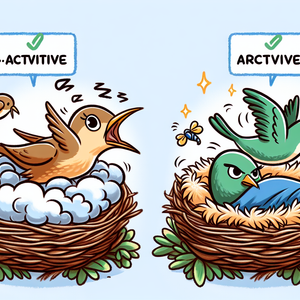Virtual Reality and the NFL Experience: A Game Changer for Fans

One of the most compelling applications of VR in the NFL is the ability to simulate game experiences. Imagine donning a VR headset and being transported to the 50-yard line of a packed stadium, feeling the energy of the crowd and the intensity of the game. Companies like Oculus and EA Sports are already experimenting with VR simulations that allow fans to relive iconic moments or even step into the shoes of their favorite players. For example, the NFL has partnered with various tech companies to develop VR training systems for players, which has opened up the possibility for fans to engage with the game in new ways. These systems recreate game scenarios, allowing fans to learn plays and strategies, and even compete against friends in virtual environments. Such immersive experiences not only enhance fan engagement but also provide educational value, allowing fans to gain a deeper understanding of the sport. This innovative approach enables fans to appreciate the complexity of football beyond what they see on TV, transforming casual viewers into informed enthusiasts.
Virtual Tailgating: Bringing Fans Together
Tailgating is a cherished tradition among NFL fans, marked by communal gatherings, delicious food, and spirited camaraderie. However, geographical constraints can limit participation. Virtual reality offers a solution through virtual tailgating parties, where fans can gather in a digital space, share food recipes, and enjoy pre-game festivities together regardless of their physical locations. Platforms like vTailgate are paving the way for these virtual experiences, allowing fans to create avatars, set up digital grills, and even play games in a shared virtual space. This technology not only expands the tailgating experience but also fosters community among fans worldwide. Imagine a scenario where a fan in New York can join a tailgate hosted by friends in Los Angeles, all while enjoying the same game and sharing the excitement in real-time. Such experiences break down the barriers of distance, allowing fans to forge connections and celebrate their love for the game together, no matter where they are located.
Enhancing Fan Interaction with Players
Another exciting prospect of VR technology is its potential to enhance interactions between fans and players. Imagine participating in a virtual meet-and-greet with your favorite player, where you can ask questions, take selfies, and receive personalized messages. Such experiences are already being explored, as athletes embrace technology to connect with their fan base on a deeper level. Moreover, teams can utilize VR to offer fans exclusive behind-the-scenes content, such as virtual locker room tours or access to player training sessions. This level of engagement not only creates a more personal connection between fans and players but also drives loyalty and enhances the overall fan experience. It allows fans to feel more invested in their teams, as they gain insights into the lives and preparations of their favorite athletes, fostering a sense of belonging and community.
The Future of Sports Viewing
As virtual reality continues to evolve, its potential to reshape the future of sports viewing is immense. Innovations such as VR broadcasting could allow fans to choose their viewing angles, immerse themselves in the action, and even interact with other viewers in a virtual stadium setting. This shift from passive viewing to active participation could revolutionize how fans consume NFL games. The NFL has already begun to experiment with VR broadcasts, and while it is still in its early stages, the possibilities are exciting. Imagine being able to watch a game from the perspective of the quarterback or standing on the sidelines to witness the action up close. These advancements promise to create a more engaging and enriching experience for fans, making them feel like an integral part of the game. The ability to customize viewing experiences will empower fans to engage with the sport in ways that resonate with their personal preferences, further enhancing the emotional connection to the game.
Virtual reality is poised to transform the way fans experience NFL games, providing immersive simulations, facilitating virtual tailgating, and enhancing interactions between fans and players. As technology continues to advance, the potential for VR in the sports industry is limitless, offering fans unprecedented access and engagement. The future of NFL viewing is not just about observing the game; it’s about experiencing it in ways we never thought possible. As we embrace this new frontier, one thing is clear: the game will never be the same again. The integration of virtual reality into the NFL experience represents a significant leap forward in how we connect with the sport, shaping a future where every fan can enjoy the thrill of the game like never before.
VR Game Designer
Oculus, EA Sports, Ubisoft
Core Responsibilities
Design and develop immersive virtual reality games focused on sports simulations, including football scenarios.
Collaborate with artists and programmers to ensure intuitive gameplay and engaging user experiences.
Conduct playtesting and gather user feedback to refine game mechanics and enhance realism.
Required Skills
Proficiency in game development software such as Unity or Unreal Engine.
Strong understanding of 3D modeling and animation techniques.
Experience with VR technology and a passion for sports.
Sports Technology Product Manager
NFL, Fanatics, sports tech startups
Core Responsibilities
Oversee the development and launch of VR products aimed at enhancing fan engagement with NFL games.
Conduct market research to identify trends and customer needs within the sports and entertainment sectors.
Collaborate cross-functionally with engineering, marketing, and design teams to drive product vision.
Required Skills
Experience in product management, preferably within the tech or sports industries.
Strong analytical skills and ability to interpret data to make informed decisions.
Excellent communication skills and experience in stakeholder management.
VR User Experience (UX) Researcher
Major tech firms, sports organizations, VR startups
Core Responsibilities
Conduct user research to understand how fans interact with virtual reality environments in sports settings.
Analyze user feedback and behavior to inform design decisions and improve user interfaces.
Create user personas and journey maps to guide the development of VR applications for NFL fans.
Required Skills
Experience with UX research methods, such as usability testing and surveys.
Familiarity with VR systems and an understanding of user-centered design principles.
Strong problem-solving skills and ability to communicate findings effectively.
Virtual Reality Software Engineer
Oculus, Electronic Arts, sports tech companies
Core Responsibilities
Develop and implement software solutions for VR applications tailored to enhance the NFL fan experience.
Optimize performance and ensure compatibility across various VR hardware platforms.
Collaborate with designers and artists to integrate visual assets and mechanics into VR environments.
Required Skills
Proficiency in programming languages such as C# or C++, particularly within VR frameworks.
Solid understanding of VR development tools and best practices.
Experience with agile development methodologies.
Digital Marketing Specialist for VR Experiences
NFL teams, sports marketing agencies, VR experience providers
Core Responsibilities
Create and execute marketing campaigns to promote VR experiences related to NFL games and events.
Develop content strategies to engage fans on social media platforms and digital channels.
Analyze campaign performance and adjust strategies to maximize reach and engagement.
Required Skills
Strong understanding of digital marketing tools and analytics.
Experience in social media management and content creation.
Passion for sports and familiarity with the VR landscape.


